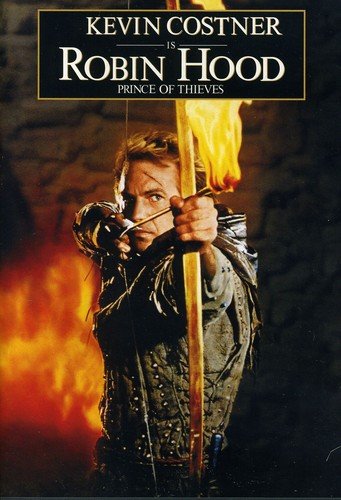Please note, if you're looking for my Privacy Policy, click here. It's probably funnier and more interesting than others you've read, and it still just means that I'm not trying to spy on you individually, but I do collect anonymous data on web traffic. And I know your email address if you give it to me for my newsletter. Scary, I know.
Piracy Policy

In order to be clear with all my website visitors how I treat piracy, I've laid out this official Piracy Policy. You do not need to agree to the terms of this policy in order to use this website.
Pirate Themes
Pirate themes are admittedly fun. It is difficult not to get some level of glee from a hearty, "Arrr matey." I officially really liked the first Pirates of the Caribbean movie. And it's music. And did you know? Pirates might not have spent all day stabbing each other in just one eye. There's a plausible theory that smart pirates -- or at least those that had to move frequently above and below deck -- kept a patch over one eye so it was adapted to the dark and they could immediately see well when moving below deck.
Actual Pirates
Actual pirates, on the other hand, are admittedly not fun. I mean, they might be fun as a group of people; they might be fun as individuals; and they might get some self-satisfaction from piracy. But actual piracy sucks.
On a global scale, of course, our concern is the Pirates of Large -- not just those on modern ships that do still act as pirates, but those who attack and steal through legislation, manipulation of the legal system, or just plain fraud. I am not fans of these pirates. Not at all.
But sadly, we are all pirates to some degree, to the level that we ever attack others and steal from them. In my mind, it doesn't have to be something physical. We can steal their dignity, their confidence, their sense of safety. Or, yes, we can download that file that someone spent a lot of time developing and asked $1 for, but instead we think it's ok to download for free because it's just digital. Well here's a thought for you: the whole world might be digital. But more on that another time.
(I freely give away my poems and many short stories since they're in digital format, but still wouldn't want people publishing them elsewhere as their own. For more on political / corporate policy, of course see Darwood & Smitty.)
Though we could debate this theory, according to this Piracy Policy, we can actually overturn the Pirates of Large by working on ourselves to no longer be pirates. We can work on the obvious levels if we're literally attacking / stealing from others, but work on other levels, too, if we're doing this in subtle ways. Pretty much no one's perfect on this, so stopping the Pirates of Large is a collective effort.
Pirate Themes
Pirate themes are admittedly fun. It is difficult not to get some level of glee from a hearty, "Arrr matey." I officially really liked the first Pirates of the Caribbean movie. And it's music. And did you know? Pirates might not have spent all day stabbing each other in just one eye. There's a plausible theory that smart pirates -- or at least those that had to move frequently above and below deck -- kept a patch over one eye so it was adapted to the dark and they could immediately see well when moving below deck.
Actual Pirates
Actual pirates, on the other hand, are admittedly not fun. I mean, they might be fun as a group of people; they might be fun as individuals; and they might get some self-satisfaction from piracy. But actual piracy sucks.
On a global scale, of course, our concern is the Pirates of Large -- not just those on modern ships that do still act as pirates, but those who attack and steal through legislation, manipulation of the legal system, or just plain fraud. I am not fans of these pirates. Not at all.
But sadly, we are all pirates to some degree, to the level that we ever attack others and steal from them. In my mind, it doesn't have to be something physical. We can steal their dignity, their confidence, their sense of safety. Or, yes, we can download that file that someone spent a lot of time developing and asked $1 for, but instead we think it's ok to download for free because it's just digital. Well here's a thought for you: the whole world might be digital. But more on that another time.
(I freely give away my poems and many short stories since they're in digital format, but still wouldn't want people publishing them elsewhere as their own. For more on political / corporate policy, of course see Darwood & Smitty.)
Though we could debate this theory, according to this Piracy Policy, we can actually overturn the Pirates of Large by working on ourselves to no longer be pirates. We can work on the obvious levels if we're literally attacking / stealing from others, but work on other levels, too, if we're doing this in subtle ways. Pretty much no one's perfect on this, so stopping the Pirates of Large is a collective effort.

Robin Hood
Let's get this out of the way: I was a teenager when Robin Hood: Prince of Thieves came out. It didn't matter that Kevin Costner had no British accent. I was totally into the theme and the mastery of archery and it captured my imagination for the summer.
But the Robin Hood myth has its fans and haters. I, myself, am not a fan of the simple concept, "Rob from the rich and give to the poor," because in this simple form, it makes Robin Hood out to be a pirate too. And not just the fun "Arrr matey" kind.
We have to be clear that there are those who've become rich by finding a way to contribute a ton of value to society, by moving our world forward. They deserve every penny of what they earned -- often through tremendous risk and sacrifice that others weren't willing to take -- and are often those who will give back through philanthropy, in their will, etc.
Then there are those who've become rich through manipulation and fraud. In short, those who have become rich because they are pirates. To me, these are the only rich that you take the money back from. Note, you don't "rob" or "steal" it -- you take it back, since it's rightfully yours.
The Robin Hood I like is the one that does not "rob from the rich," but "takes back from the pirates." Robin Hood is often portrayed in this righteous way, which is why I like the theme; but only when we're careful to clarify that we ONLY take back from pirates, and we respect the wealth of those who have given value to the world.
Because of this, I think it's a brilliant "divide and conquer" tactic when politicians keep us focused on tax policies about who should pay the highest percentage of their income and who used what loopholes, etc. They keep the rich, middle class, and poor at each other's throats while ignoring those who are the real problem. In fact, if we started to eliminate fraud and black budgets and incredibly corrupt use of money in this country and around the world -- if we started focusing on the pirates rather than "the rich" -- our collective standard of living would probably skyrocket.
Achieving this arguably goes back to each of us seeing this distinction and standing against fraud and corruption where we see it, at the level of our own lives. I believe if we collectively do this, it alters the mass consciousness that drives the systemic problems. I believe in this rather than engaging in violence or even illegal attempts to "take back" what we believe is legitimately ours -- because that can cross all sorts of lines and lead to chaos. We don't need that. We need to lead our best lives and create a tipping point where the system must as well.
Let's get this out of the way: I was a teenager when Robin Hood: Prince of Thieves came out. It didn't matter that Kevin Costner had no British accent. I was totally into the theme and the mastery of archery and it captured my imagination for the summer.
But the Robin Hood myth has its fans and haters. I, myself, am not a fan of the simple concept, "Rob from the rich and give to the poor," because in this simple form, it makes Robin Hood out to be a pirate too. And not just the fun "Arrr matey" kind.
We have to be clear that there are those who've become rich by finding a way to contribute a ton of value to society, by moving our world forward. They deserve every penny of what they earned -- often through tremendous risk and sacrifice that others weren't willing to take -- and are often those who will give back through philanthropy, in their will, etc.
Then there are those who've become rich through manipulation and fraud. In short, those who have become rich because they are pirates. To me, these are the only rich that you take the money back from. Note, you don't "rob" or "steal" it -- you take it back, since it's rightfully yours.
The Robin Hood I like is the one that does not "rob from the rich," but "takes back from the pirates." Robin Hood is often portrayed in this righteous way, which is why I like the theme; but only when we're careful to clarify that we ONLY take back from pirates, and we respect the wealth of those who have given value to the world.
Because of this, I think it's a brilliant "divide and conquer" tactic when politicians keep us focused on tax policies about who should pay the highest percentage of their income and who used what loopholes, etc. They keep the rich, middle class, and poor at each other's throats while ignoring those who are the real problem. In fact, if we started to eliminate fraud and black budgets and incredibly corrupt use of money in this country and around the world -- if we started focusing on the pirates rather than "the rich" -- our collective standard of living would probably skyrocket.
Achieving this arguably goes back to each of us seeing this distinction and standing against fraud and corruption where we see it, at the level of our own lives. I believe if we collectively do this, it alters the mass consciousness that drives the systemic problems. I believe in this rather than engaging in violence or even illegal attempts to "take back" what we believe is legitimately ours -- because that can cross all sorts of lines and lead to chaos. We don't need that. We need to lead our best lives and create a tipping point where the system must as well.